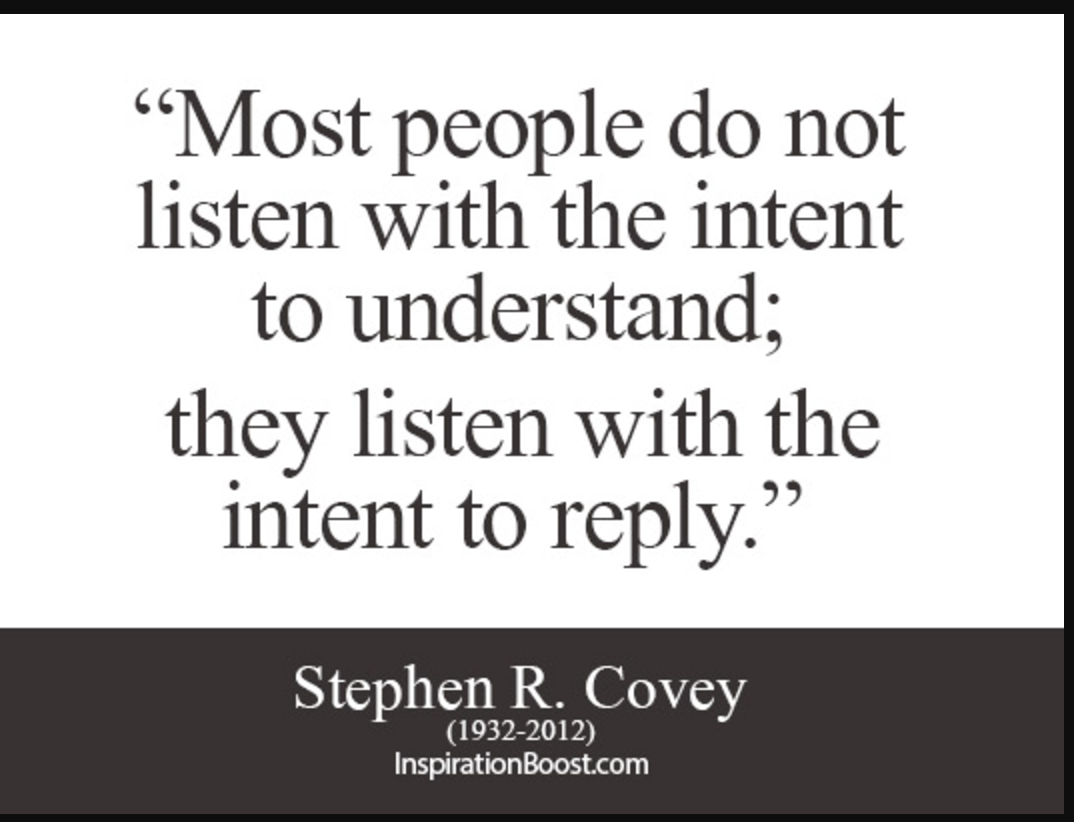
Last week I took some time for myself to relax and rejuvenate. Each morning I took a walk that enabled me to see some beautiful sunrises and some unique sites (Decorated Beach Trees). During those walks I had opportunities to FaceTime with Grace, my three year old granddaughter, who lives near the beach in Northern New Jersey. She had difficulty understanding why Grandpa could go to the beach, wear shorts, and walk in the water in the winter. Per Grace, “It’s too cold to go to the beach and walk in the water silly grandpa!” Try as I might I simply couldn’t make the “Communication Connection” with her. This morning when we “FaceTimed” she asked if I was going to the beach again. When I said, “No” she responded, “Good, it’s too cold for you to be at the beach”. Hopefully, it gets easier as she gets older.
As I took those morning walks I listened. Sometimes it was simply listening to the sounds of the beach or some classical guitar by Per-Olov Kindgren. More often than not, it was listening to my own thoughts. As I reflected on my FaceTime with Grace, I recognized that I needed to be a better listener. Perhaps my inability to communicate with my her was simply because I didn’t listen to what she was asking and saying to me. Perhaps to be a better communicator, I need first to be a better listener.
“Let other people speak into the silence and listen quietly for the truth behind their words.” Peter Bregman shares this secret in his HBR post, “If You Want People to Listen, Stop Talking“. In the article he shares the story of George, a managing director at a large financial services firm, who had the uncanny ability to not only speak his mind, but often persuade others to agree. Bregman points out that arguing does not change minds, in fact, it often solidifies a position. Silence he says, “ is a greatly underestimated source of power. In silence, we can hear not only what is being said but also what is not being said. In silence, it can be easier to reach the truth.”
Similar thoughts can be found in Matt Mayberry’s post in “Entrepreneur” wherein he examines listening as an art practiced by effective leaders. In his contribution, “Listening is an Art and Mastering it Will Make You a Great Leader”, he proposes that in an environment filled with distractions (text messages, cell phone calls, e-mails, notifications, etc.) the truly wise leader is present, focused, attentive when listening and appreciative of what they hear. He states, “A powerful listener acknowledges that the person speaking will welcome the opportunity to be heard. A wise listener and leader will validate anyone who is speaking.”
Covey said it all, “Seek first to understand, then to be understood!” . I’ll let you know how my next conversation goes with Grace. Have a great week and Embrace the Challenge,
Rick
